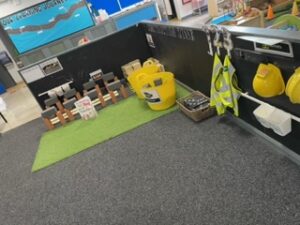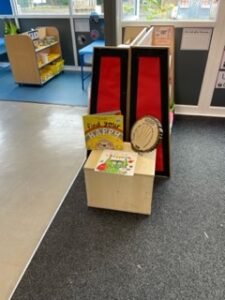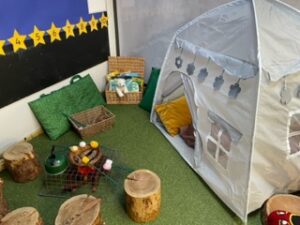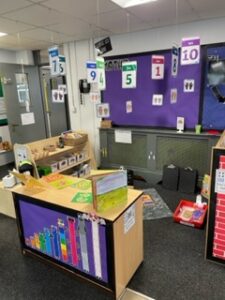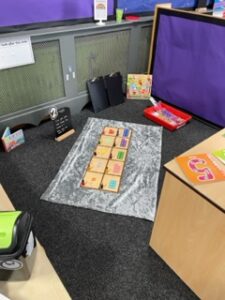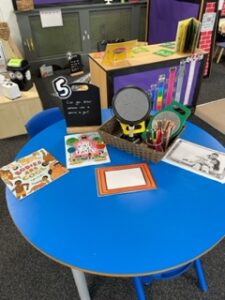We’ve continued our learning of classification keys in our weekly science lesson.
Ask your child about the time we classified our classmates…

We’ve continued our learning of classification keys in our weekly science lesson.
Ask your child about the time we classified our classmates…

This week’s Talk Time brings together the learning that has happened in our Reading sessions last week. The Acceptable Use Agreements have been used in all classes as the stimulus for the reading lessons, as well as a copy being sent home to be agreed and signed.
Check out the KS1 and KS2 agreements.
After reading and discussing these agreements, do you feel these rules could apply outside of school too (e.g. at home or using the internet on your mobile phone)?
Do you think it’s a good idea to have agreed rules in place when using the internet?
In reception and nursery we have been learning more about our school rules. This week we have focused on ‘we keep hands, feet and objects to ourselves’. We have thought about what this might mean and how it can help us in school. After our discussion we all made a hand print poster to remind us of this school rule.
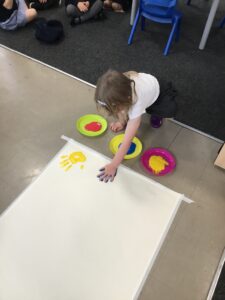
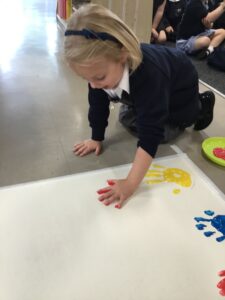
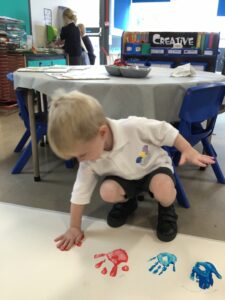
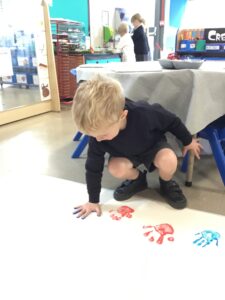
This week in reception we have been busy exploring our indoor and outdoor classrooms. We have enjoyed making new friends and even started learning phonics!








This week’s spellings all have the same sound but are written in different ways:
eight
famous
straight
strange
weight
tray
great
snake
brain
they
everyday
We call the different ways the same sound is spelled alternative graphemes. Take a look at the table below to help with this:

We’ve been busy biologists in our science lesson this week! 😁
We used Venn diagrams to help sort and classify animals using different criterion. Murielle, Aubree and Lilly thought of classifying animals according to their number of legs or if the animal had fur. Jacob, Evie and Liam classified animals by scales or if the animal had a tail.
Check out this short animation. Before we classified animals, we used biscuits to support our understanding of classification. See if your child can chat about the time we classified biscuits..! Here’s a little hint for them…

This week’s message comes from Mr Wilks, who’s our Science and Foundation Subjects Leader. In this message, Mr Wilks introduces your child’s current topic…
Topics are the vehicle for delivering much of the learning in the foundation subjects (eg Art, History, Geography). Each half-termly topic has a driving subject – the main focus for teaching pupils knowledge and skills.
There are opportunities for enrichment through other subjects. For example, learning in an art topic may be enriched by geography learning about where an artist was born and lived.
Read more about the intent, implementation and impact of our topics.
This half-term, we’re historians. We’ll develop our understanding of the past, both in Britain and the wider world.
Each phase has age-related specific knowledge, skills and vocabulary: see pages 27 and 28 of our Curriculum Statement.
Each phase also has key historical concepts which will feature within most lessons. These historical concepts are themes that are revisited, strengthened and deepened during your child’s journey through the history curriculum. See page 24 of the Curriculum Statement.
In this topic, children learn about a significant British historical event: The Great Fire of London.
Children will learn about life at the time of the Great Fire of London. They’ll learn where the fire started and how it spread so quickly and the innovative ways that it was extinguished. Importantly, they’ll learn about the different sources of evidence that have helped us answer these questions, including Samuel Pepys’ diary. Finally, they’ll learn about the significant changes that occurred as a result of the fire, such as legal changes about the way houses were built and the beginning of a fire service in London.
The key concept that children will learn about in this history topic is innovation.
In this topic, children learn about Ancient Greece.
Children begin by sequencing periods of British history and seeing where the ‘golden-age’ of the Ancient Greek civilisation sits alongside. They’ll then learn about two contrasting city states: Athens and Sparta. Children will learn about the type of government these states had and what the lives of the people living there were like. They’ll then debate which city state was the best. Next, they’ll focus in on the influence that Athens has had on the world: democracy, mathematics, philosophy, literature, culture… Finally, they’ll learn about how the civilisation ended.
The key concepts for this topic are civilisation, government and innovation.
In this topic, children learn about Stone Age to Iron Age Britain and contrast it with Ancient Egypt.
They begin by looking at and creating timelines which sequence the periods of British history and also placing Ancient Egypt on this timeline. They’ll learn about the advances and innovations that occurred during the New Stone Age, Bronze Age and Iron Age. They’ll learn about and understand that the sources of evidence we have are limited to archaeological evidence. They’ll then learn about the Ancient Egyptian civilisation and contrast this with what was happening in Britain at the same time – it’s a stark contrast!
The key concepts for this topic are innovation and civilisation.
Talk to your child about what they have been learning in class. The class news pages are a good place to go to find out more about what the children are doing.
Find some books from the library which match what your child is learning. I’m sure there’ll be plenty of books about the history your child will be learning about.
Watch television shows about history. Horrible Histories is great (regardless of your age!).
The BBC Bitesize history webpages have been revamped this summer and have lots of information about the history being covered this half-term.
If it’s a rainy weekend and you’re looking for something to do, why not spend a morning or afternoon in a museum? A visit to Leeds City Museum (next to Millennium Square) would be great for all children but especially for Y3,4 and Y5,6 children as it has some Ancient Greek and Ancient Egyptian exhibits, including Nesyamum, the 3,000 year old Leeds mummy!
London’s a bit far for a rainy weekend but the Fire of London website is great and will support and deepen children’s learning.
There’s a social theme to this week’s Talk Time.
In our school, we have 3 school rules:
Is it important to have rules to follow in and outside of school? Is there a rule that we’re missing?
This week’s R2s (‘remember tos’) will help you to provide a balanced argument before you reach a conclusion:
One way to approach this Talk Time is to have a debate with people in your household. This will not only help you generate ideas but also practise a range of oracy skills. Last year, one of the oracy focuses was building on the views of others and reasoning. When someone raises a point that you’re in agreement with, use one of the following phrases to start your response:
On the other hand, you may disagree with a point made by a family member. When that’s the case, it can be hard not to interrupt them. Another oracy focus from last year was turn-taking. To be respectful of others’ opinions, wait until a person has finished speaking and then respond using one of these sentence starters or one of your own:
Over the course of the year we will be holding lots of exciting events for you to get involved in.
If you have any questions about any of the sessions please do not hesitate to get in touch.
The Reception Team
A big hello from everyone in Reception!
This week we have been busy creating an exciting learning environment for everyone to enjoy. We have welcomed our first group of children for transition sessions and are excited to see our second group on Monday.
We hope you enjoy looking at some of our provision that will be ready for you to explore next week.
See you all on Monday!
The Reception Team
